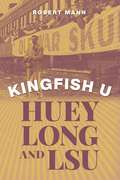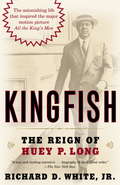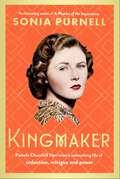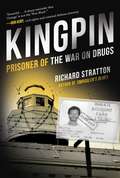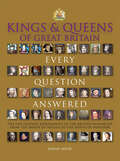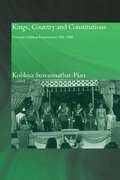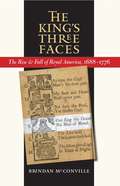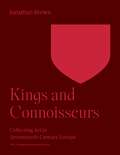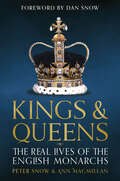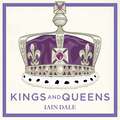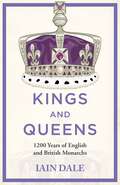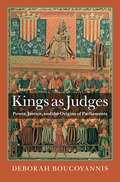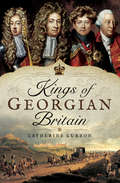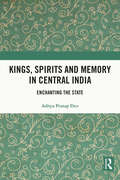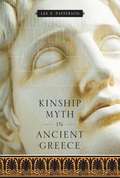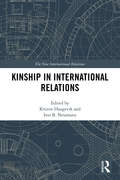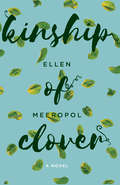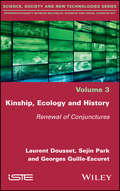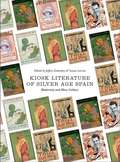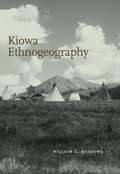- Table View
- List View
Kingfish U: Huey Long and LSU
by Robert MannNo political leader is more closely identified with Louisiana State University than the flamboyant governor and U.S. senator Huey P. Long, who devoted his last years to turning a small, undistinguished state school into an academic and football powerhouse. From 1931, when Long declared himself the “official thief” for LSU, to his death in 1935, the school’s budget mushroomed, its physical plant burgeoned, its faculty flourished, and its enrollment tripled. Along with improving LSU’s academic reputation, Long believed the school’s football program and band were crucial to its success. Taking an intense interest in the team, Long delivered pregame and halftime pep talks, devised plays, stalked the sidelines during games, and fired two coaches. He poured money into a larger, flashier band, supervised the hiring of two directors, and, with the second one, wrote a new fight song, “Touchdown for LSU.” While he rarely meddled in academic affairs, Long insisted that no faculty member criticize him publicly. When students or faculty from “his school” opposed him, retribution was swift. Long’s support for LSU did not come without consequences. His unrelenting involvement almost cost the university its accreditation. And after his death, several of his allies—including his handpicked university president—went to prison in a scandal that almost destroyed LSU.Rollicking and revealing, Robert Mann’s Kingfish U is the definitive story of Long’s embrace of LSU.
Kingfish: The Reign of Huey P. Long
by Richard D. White Jr.From the moment he took office as governor in 1928 to the day an assassin&’s bullet cut him down in 1935, Huey Long wielded all but dictatorial control over the state of Louisiana. A man of shameless ambition and ruthless vindictiveness, Long orchestrated elections, hired and fired thousands at will, and deployed the state militia as his personal police force. And yet, paradoxically, as governor and later as senator, Long did more good for the state&’s poor and uneducated than any politician before or since. Outrageous demagogue or charismatic visionary? In this powerful biography, Richard D. White, Jr., brings Huey Long to life in all his blazing, controversial glory. White taps invaluable new source material to present a fresh, vivid portrait of both the man and the Depression era that catapulted him to fame. From his boyhood in dirt-poor Winn Parish, Long knew he was destined for power–the problem was how to get it fast enough to satisfy his insatiable appetite. With cunning and crudity unheard of in Louisiana politics, Long crushed his opponents in the 1928 gubernatorial race, then immediately set about tightening his iron grip. The press attacked him viciously, the oil companies howled for his blood after he pushed through a controversial oil processing tax, but Long had the adulation of the people. In 1930, the Kingfish got himself elected senator, and then there was no stopping him.White&’s account of Long&’s heyday unfolds with the mesmerizing intensity of a movie. Pegged by President Roosevelt as &“one of the two most dangerous men in the country,&” Long organized a radical movement to redistribute money through his Share Our Wealth Society–and his gospel of pensions for all, a shorter workweek, and free college spread like wildfire. The Louisiana poor already worshiped him for building thousands of miles of roads and funding schools, hospitals, and universities; his outrageous antics on the Senate floor gained him a growing national base. By 1935, despite a barrage of corruption investigations, Huey Long announced that he was running for president. In the end, Long was a tragic hero–a power addict who squandered his genius and came close to destroying the very foundation of democratic rule. Kingfish is a balanced, lucid, and absolutely spellbinding portrait of the life and times of the most incendiary figure in the history of American politics.
Kingmaker: Pamela Churchill Harriman's astonishing life of seduction, intrigue and power
by Sonia PurnellAn electrifying re-examination of one of the twentieth century's greatest unsung power players, from the bestselling author of A WOMAN OF NO IMPORTANCE'Superb and fascinating. I can't recommend it more' LADY ANNE GLENCONNER, bestselling author of Lady in Waiting'Fascinating and revelatory, written with great aplomb, insight and shrewd analysis. A triumph' WILLIAM BOYD'An incredible story, beautifully told, of a remarkable woman whose political influence spanned Churchill to Clinton. Quite a woman, quite a read' ALASTAIR CAMPBELLWhen Pamela Churchill Harriman died in 1997, the obituaries that followed were scathing - and often downright sexist. Written off as a social climber, her glamorous social life and infamous erotic adventures overshadowed her true legacy. Much of what she did behind the scenes to shape the twentieth century, on both sides of the Atlantic, remained invisible. That is, until now: with a wealth of fresh research, Sonia Purnell unveils for the first time the full, spectacular story of how Harriman left an indelible mark on the world today.There is practically no-one in twentieth-century politics, culture and fashion whose lives she did not touch. Her influence began at age twenty, when her father-in-law, Winston Churchill, engaged her as a "secret weapon" during World War II, wining, dining and seducing Americans over to the British cause against Hitler. It continued later in the US, where she hand-picked Bill Clinton from obscurity and vaulted him to the presidency. It extended further, over five decades and two continents, influencing figures like the Kennedys, Nelson Mandela, Truman Capote, Gianni Agnelli, Kay Graham, Gloria Steinem and Frank Sinatra.Written with the novelistic richness and investigative rigour that only Sonia Purnell could bring to this story full of sex, power, yachts, palaces and fabulous clothes, Kingmaker sets out Harriman's rightful place at the heart of recent history.****'Purnell has made a statement by giving Harriman the Big Life treatment. In Purnell's hands, Kingmaker becomes a study of the limited means of influence available to ambitious women of Harriman's generation' DAILY TELEGRAPH 'Purnell's research is impeccable' SPECTATOR'Sympathetic, well-researched, busily peopled' OBSERVER BOOK OF THE DAY'Riveting and revelatory' THE NEW YORKER
Kingmaker: Pamela Churchill Harriman's astonishing life of seduction, intrigue and power
by Sonia PurnellAn electrifying re-examination of one of the twentieth century's greatest unsung power players, from the bestselling author of A WOMAN OF NO IMPORTANCE'Superb and fascinating. I can't recommend it more' LADY ANNE GLENCONNER, bestselling author of Lady in Waiting'Fascinating and revelatory, written with great aplomb, insight and shrewd analysis. A triumph' WILLIAM BOYD'Refreshing and timely; meticulously researched; highly readable ... Pamela, in Purnell's deft hands, blossoms into a fascinating subject' FINANCIAL TIMES'An incredible story, beautifully told, of a remarkable woman whose political influence spanned Churchill to Clinton. Quite a woman, quite a read' ALASTAIR CAMPBELLWhen Pamela Churchill Harriman died in 1997, the obituaries that followed were scathing - and often downright sexist. Written off as a social climber, her glamorous social life and infamous erotic adventures overshadowed her true legacy. Much of what she did behind the scenes to shape the twentieth century, on both sides of the Atlantic, remained invisible. That is, until now: with a wealth of fresh research, Sonia Purnell unveils for the first time the full, spectacular story of how Harriman left an indelible mark on the world today.There is practically no-one in twentieth-century politics, culture and fashion whose lives she did not touch. Her influence began at age twenty, when her father-in-law, Winston Churchill, engaged her as a "secret weapon" during World War II, wining, dining and seducing Americans over to the British cause against Hitler. It continued later in the US, where she hand-picked Bill Clinton from obscurity and vaulted him to the presidency. It extended further, over five decades and two continents, influencing figures like the Kennedys, Nelson Mandela, Truman Capote, Gianni Agnelli, Kay Graham, Gloria Steinem and Frank Sinatra.Written with the novelistic richness and investigative rigour that only Sonia Purnell could bring to this story full of sex, power, yachts, palaces and fabulous clothes, Kingmaker sets out Harriman's rightful place at the heart of recent history.****'In Purnell's hands, Kingmaker becomes a study of the limited means of influence available to ambitious women of Harriman's generation' DAILY TELEGRAPH'A thorough account of Harriman's rise which also manages to be a brisk, twisty read ... Riveting and revelatory' THE NEW YORKER'Purnell's research is impeccable' SPECTATOR'It might be said now that this woman with many high-profile lovers was "slut-shamed," and that her high "body count" is, while relevant to her accomplishments, no more deserving of negative judgment than that of her prominent male partners ... Purnell seeks nobly to highlight Harriman's involvement in public as well as private affairs' NEW YORK TIMES'Sympathetic, well-researched, busily peopled' OBSERVER BOOK OF THE DAY
Kingpin: Prisoner of the War on Drugs (Cannabis Americana #2)
by Richard StrattonThis fast-paced sequel to Smuggler's Blues is a harrowing and at times comical journey through the criminal justice system at the height of America's War on Plants.Captured in the lobby of the Sheraton Senator Hotel at LAX following a fifteen-year run smuggling marijuana and hashish as part of the hippie mafia, Richard Stratton began a new journey. Kingpin tells the story of the eight years that followed, through two federal trials and the underworld of the federal prison system, at a time when it was undergoing unprecedented expansion due to the War on Drugs. Stratton was shipped by bus from LA' s notorious Glass House to jails and prisons across the country, a softening process known as diesel therapy. Resisting pressure to falsely implicate his friend and mentor, Norman Mailer, he was convicted in his second trial under the kingpin statute and sentenced to twenty-five years without the possibility of parole.While doing time in prisons from Manhattan's Criminal Hilton to rural Pennsylvania, Virginia, Kentucky, and New York, he witnessed brutality as well as camaraderie, rampant trafficking of contraband, and crimes by both guards and convicts. He first learned the lessons of survival. Then he learned to prevail, becoming a jailhouse lawyer and winning the reversal of his kingpin sentence and eventual release.Kingpin includes cameos by Norman Mailer and Muhammad Ali, and an account of the author's friendship with mafia don Joe Stassi, a legendary hitman from the early days of the mob who knew gangsters Meyer Lansky, Bugsy Siegel, and Abe Zwillman and has insights into the killing of Dutch Schultz and the Kennedy assassinationKingpin is the second volume in Richard Stratton's trilogy, Remembrance of the War on Plants.
Kings & Queens of Great Britain: Every Question Answered
by David SoudFrom the House of Wessex to the House of Windsor, follow the pageant of personalities that have made Great Britain what it is today. Fascinating biographies of the British monarchs from the time of Roman Brittania to present day answer your every question about the country&’s aristocracy. Details of the kings&’ and queens&’ personalities are the focus, with a timeline across the bottom relating the major events of their reigns. Also included is a section devoted to royal edicts. All the Edwards, Richards, Henrys, and Williams are represented—along with outstanding personalities such as Lady Jane Grey and Oliver Cromwell—a king in all but name. This is essential reading for all Anglophiles, so brew a pot of tea and dig into the history!
Kings Countries & Constitutions - SEA NIP: Thailand's Political Development 1932-2000
by Kobkua Suwannathat-PianProviding a detailed analysis of Thailand's political development since 1932, when Thailand became a constitutional monarchy, until the present, this book examines the large number of different versions of the constitution which Thailand has had since 1932, and explains why the constitution has been subject to such frequent change, and why there have been so many outbursts of violent, political unrest. It explores the role of the military, and, most importantly, discusses the role of the monarchy, which, as the author shows, has been crucial in holding Thailand together through the various changes of regime. The author brings to light original and largely unseen documents from the Public Records Office and US National Archives, as well as drawing upon her extensive knowledge of politics in Thailand.
Kings Three Faces: The Rise & Fall of Royal America, 1688-1776
by Brendan McconvilleReinterpreting the first century of American history, Brendan McConville argues that colonial society developed a political culture marked by strong attachment to Great Britain's monarchs.
Kings and Connoisseurs: Collecting Art in Seventeenth-Century Europe (The A. W. Mellon Lectures in the Fine Arts #43)
by Jonathan BrownA vivid and exciting account of royal collectors, art dealers, connoisseurs, and the rise of old master paintingsOld master paintings are among the most valuable and prestigious of the visual arts, and the best examples command the highest prices of any luxury commodity. In Kings and Connoisseurs, Jonathan Brown tells the story of how painting rose to this exalted status. The transformation of painting from an inexpensive to a costly art form reached a crucial stage in the royal courts of Europe in the seventeenth century, where rulers and aristocrats assembled huge collections, often in short periods of time. By comparing collecting and collectors at these courts, Brown explains the formation of new attitudes toward pictures, as well as the mechanisms that supported the enterprise of collecting, including the emergence of the art dealer, the development of connoisseurship, and the publication of sumptuous picture books of various collections. The result is an exciting narrative of greed and passion, played out against a background of international politics and intrigue.
Kings and Queens of England: The Real Lives Of The English Monarchs
by Peter SnowHistorians and broadcasters Peter Snow and Ann MacMillan tell the real stories of the most powerful men and women in British history.Updated for the 2023 coronation, Kings & Queens explores the lives, loves, triumphs and disasters of a monarchy that is the envy of the world. Snow and MacMillan offer a unique insight into those born to rule, whether villains or heroes – from cruel King John and warrior-king Edward III, to our newest monarch, King Charles III.This is the story of modern civilization through the lens of those who have ruled.
Kings and Queens of England: The Real Lives Of The English Monarchs
by Peter SnowHistorians and broadcasters Peter Snow and Ann MacMillan tell the real stories of the most powerful men and women in British history.Updated for the 2023 coronation, Kings & Queens explores the lives, loves, triumphs and disasters of a monarchy that is the envy of the world. Snow and MacMillan offer a unique insight into those born to rule, whether villains or heroes – from cruel King John and warrior-king Edward III, to our newest monarch, King Charles III.This is the story of modern civilization through the lens of those who have ruled.
Kings and Queens: 1200 Years of English and British Monarchs
by Iain DaleAn essay on every individual who sat on the British and English throne, compiled and edited by Iain Dale.'We all know about Queen Victoria, Edward VIII and Queen Elizabeth II, but how much do we really know about other monarchs? Yes, we know William the Conqueror beat King Harold at the Battle of Hastings. We know George III was mad, but what else do we know about his 60 year long reign? We know Henry VIII famously had six wives, but do we know much more about him, other than he was very fat?'The British monarchy is one of the oldest in the world - dating so far back that even its origins are the subject of debate. Was William the Conqueror the first king of England, or was it Alfred the Great? In this third instalment of the series that began with The Prime Ministers and The Presidents, Iain Dale charts this long history of the English and British monarchy, with 64 essays by journalists, historians and politicians on every individual to have sat on the throne, as well as some who didn't.From Alfred the Great to Charles III, each essay examines the monarch, their role and what they tell us about British history. Why has the British monarchy, unlike so many others, endured? Kings and Queens will attempt to answer this question, and many others, providing valuable insight into British history and how Britain is ruled today.(P)2023 Hodder & Stoughton Limited
Kings and Queens: 1200 Years of English and British Monarchs
by Iain Dale'We all know about Queen Victoria, Edward VIII and Queen Elizabeth II, but how much do we really know about other monarchs? Yes, we know William the Conqueror beat King Harold at the Battle of Hastings. We know George III was mad, but what else do we know about his 60 year long reign? We know Henry VIII famously had six wives, but do we know much more about him, other than he was very fat?'The British monarchy is one of the oldest in the world - dating so far back that even its origins are the subject of debate. Was William the Conqueror the first king of England, or was it Alfred the Great? In this third instalment of the series that began with The Prime Ministers and The Presidents, Iain Dale charts this long history of the English and British monarchy, with 64 essays by journalists, historians and politicians on every individual to have sat on the throne, as well as some who didn't.From Alfred the Great to Charles III, each essay examines the monarch, their role and what they tell us about British history. Why has the British monarchy, unlike so many others, endured? Kings and Queens will attempt to answer this question, and many others, providing valuable insight into British history and how Britain is ruled today.
Kings and Queens: 1200 Years of English and British Monarchs
by Iain Dale'We all know about Queen Victoria, Edward VIII and Queen Elizabeth II, but how much do we really know about other monarchs? Yes, we know William the Conqueror beat King Harold at the Battle of Hastings. We know George III was mad, but what else do we know about his 60 year long reign? We know Henry VIII famously had six wives, but do we know much more about him, other than he was very fat?'The British monarchy is one of the oldest in the world - dating so far back that even its origins are the subject of debate. Was William the Conqueror the first king of England, or was it Alfred the Great? In this third instalment of the series that began with The Prime Ministers and The Presidents, Iain Dale charts this long history of the English and British monarchy, with 64 essays by journalists, historians and politicians on every individual to have sat on the throne, as well as some who didn't.From Alfred the Great to Charles III, each essay examines the monarch, their role and what they tell us about British history. Why has the British monarchy, unlike so many others, endured? Kings and Queens will attempt to answer this question, and many others, providing valuable insight into British history and how Britain is ruled today.
Kings as Judges: Power, Justice, and the Origins of Parliaments
by Deborah BoucoyannisHow did representative institutions become the central organs of governance in Western Europe? What enabled this distinctive form of political organization and collective action that has proved so durable and influential? The answer has typically been sought either in the realm of ideas, in the Western tradition of individual rights, or in material change, especially the complex interaction of war, taxes, and economic growth. Common to these strands is the belief that representation resulted from weak ruling powers needing to concede rights to powerful social groups. Boucoyannis argues instead that representative institutions were a product of state strength, specifically the capacity to deliver justice across social groups. Enduring and inclusive representative parliaments formed when rulers could exercise power over the most powerful actors in the land and compel them to serve and, especially, to tax them. The language of rights deemed distinctive to the West emerged in response to more effectively imposed collective obligations, especially on those with most power.
Kings of Georgian Britain
by Catherine CurzonThis royal historian&’s &“lively study of the four Georges who sat on the English throne for over a century is a joy&” (Jane Austen&’s Regency World). For over one hundred years of turmoil, upheaval, and scandal, Great Britain was a Georgian land. From the day the German-speaking George I stepped off the boat from Hanover to the night that George IV, bloated and diseased, breathed his last at Windsor, the four kings had presided over a changing nation. Kings of Georgian Britain offers a fresh perspective on the lives of the four Georges and the events that shaped their characters and reigns. From love affairs to family feuds, political wrangling, and beyond, it is a chance to peer behind the pomp and follow these iconic figures from cradle to grave. After all, being a king isn&’t always about grand parties and jaw-dropping jewels, and sometimes following in a father&’s footsteps can be the hardest job around. Take a step back in time and meet the wives, mistresses, friends, and foes of these remarkable kings who shaped the nation, and find out what really went on behind closed palace doors. Whether dodging assassins, marrying for money, digging up their ancestors, or sparking domestic disputes that echoed down the generations, the kings of Georgian Britain were never short on drama. &“[A] chronological series of amusing anecdotes. [Curzon is] often whimsical, has a good sense of pace and you can imagine her stifling a smirk while writing this unusual biography.&” —History of Royals
Kings, Conquerors, Psychopaths: From Alexander To Hitler To The Corporation
by Joseph AbrahamRight wing populists increasingly draw attention around the globe, but the attention is misdirected. The real problem is not the authoritarian leader, but the blinkered supporters who unquestioningly follow him. Without them, the despot is irrelevant. Why do we attach ourselves to demagogues and mountebanks? Why do we defend even their most obvious hypocrisies and lies? The answer lies in the roots of civilization. Despite our romantic traditions, monarchs were never wise, just, nor generous. Even the briefest review of history shows that, without exception, kings were the most vicious psychopaths, narcissists, and sadists who ever lived. And the only path for survival in the ancient world required unquestioningly obeying— and blindly believing— anything the king said.
Kings, Spirits and Memory in Central India: Enchanting the State
by Aditya Pratap DeoPart anthropological history and part memoir, this book is a unique study of the polity of the colonial-princely state of Kanker in central India. The author, a scion of the erstwhile ruling family of Kanker, delves into the oral accounts given in the ancestral deity practices of the mixed tribe-caste communities of the region to highlight popular narratives of its historical polity. As he struggles with his own dilemmas as ethnographer-king, what comes into view is a polity where the princely state is drawn out amidst a terrain of gods and spirits as much as that of law courts and magistrates, and political power is divided, contested and shared between the raja/state and the people. This study constitutes not only an intervention in the larger debate on the relationship between state formations and tribal peoples, but also on the very nature of history as a knowledge practice, especially the understandings of power, authority and sovereignty in it. Combining intensive ethnography, complementary archival work and crucial theoretical questions engaging social scientists worldwide, the author charts an unusual explanatory path that can allow us to meaningfully understand societies/peoples that have historically been marginalized and seen as different. This book will be of interest to students and researchers of history, anthropology, politics, religion, tribal society and Modern South Asia.
Kingship and Consent in Anglo-Saxon England, 871-978
by Levi RoachThis engaging new study focuses on the role of assemblies in later Anglo-Saxon politics, challenging and nuancing existing models of the late Anglo-Saxon state. Its ten chapters investigate both traditional constitutional aspects of assemblies - who attended these events, where and when they met, and what business they conducted - and the symbolic and representational nature of these gatherings. Levi Roach takes into account important recent work on continental rulership, and argues that assemblies were not a check on kingship in these years, but rather an essential feature of it. In particular, the author highlights the role of symbolic communication at assemblies, arguing that ritual and demonstration were as important in English politics as they were elsewhere in Europe. Far from being exceptional, the methods of rulership employed by English kings look very much like those witnessed elsewhere on the continent, where assemblies and ritual formed an essential part of the political order.
Kinship Myth in Ancient Greece
by Lee E. PattersonIn ancient Greece, interstate relations, such as in the formation of alliances, calls for assistance, exchanges of citizenship, and territorial conquest, were often grounded in mythical kinship. In these cases, the common ancestor was most often a legendary figure from whom both communities claimed descent. In this detailed study, Lee E. Patterson elevates the current state of research on kinship myth to a consideration of the role it plays in the construction of political and cultural identity. He draws examples both from the literary and epigraphical records and shows the fundamental difference between the two. He also expands his study into the question of Greek credulity--how much of these founding myths did they actually believe, and how much was just a useful fiction for diplomatic relations? Of central importance is the authority the Greeks gave to myth, whether to elaborate narratives or to a simple acknowledgment of an ancestor. Most Greeks could readily accept ties of interstate kinship even when local origin narratives could not be reconciled smoothly or when myths used to explain the link between communities were only "discovered" upon the actual occasion of diplomacy, because such claims had been given authority in the collective memory of the Greeks.
Kinship in International Relations (New International Relations)
by Iver B Neumann Kristin HaugevikWhile kinship is among the basic organizing principles of all human life, its role in and implications for international politics and relations have been subject to surprisingly little exploration in International Relations (IR) scholarship. This volume is the first volume aimed at thinking systematically about kinship in IR – as an organizing principle, as a source of political and social processes and outcomes, and as a practical and analytical category that not only reflects but also shapes politics and interaction on the international political arena. Contributors trace everyday uses of kinship terminology to explore the relevance of kinship in different political and cultural contexts and to look at interactions taking place above, at and within the state level. The book suggests that kinship can expand or limit actors’ political room for maneuvereon the international political arena, making some actions and practices appear possible and likely, and others less so. As an analytical category, kinship can help us categorize and understand relations between actors in the international arena. It presents itself as a ready-made classificatory system for understanding how entities within a hierarchy are organized in relation to one another, and how this logic is all at once natural and social.
Kinship of Clover: A Novel
by Ellen Meeropol&“Wonderful . . . a story about young people organizing for a sustainable future…as their once-radical elders try to hold on to a gradually disappearing past.&” ―Charles Baxter, author of The Sun Collective He was nine when the vines first wrapped themselves around him and burrowed into his skin. Now a college botany major, Jeremy is desperately looking for a way to listen to the plants and stave off their extinction. But when the grip of the vines becomes too intense and Health Services starts asking questions, he flees to Brooklyn, where fate puts him face to face with a group of climate-justice activists who assure him they have a plan to save the planet, and his plants. As the group readies itself to make a big Earth Day splash, Jeremy soon realizes these eco-terrorists&’ devotion to activism might have him—and those closest to him—tangled up in more trouble than he was prepared to face. With the help of a determined, differently abled flame from his childhood; her deteriorating, once–rabble-rousing grandmother; and some shocking and illuminating revelations from the past, Jeremy must weigh completing his mission to save the plants against protecting the ones he loves, and confront the most critical question of all: how do you stay true to the people you care about while trying to change the world? &“Ellen Meeropol has an uncanny knack for examining the big topics of our contemporary world and putting a human face on them . . . a must read.&” ―Ann Hood, author of The Obituary Writer &“Gripping . . . irresistible characters.&” —The Berkshire Eagle
Kinship, Ecology and History: Renewal of Conjunctures
by Laurent Dousset Georges Guille-Escuret Sejin ParkThe analysis of kinship plays a major role in social anthropology. However, the intellectual triumph of structuralism has transformed this analysis into an ivory tower and the methodological hegemony of functionalism inhibits any historical authority. Kinship, Ecology and History informs the reader of these old, yet long-lasting issues. By presenting new, original perspectives, this book reinvents the manner in which we can study kinship. It also examines ecology and history as a conjectural reflection, which make up the foundations on which human kinship can be reflected upon. Whether human kinship is understood in the form of systematics models or as articulated practices, it has to be conceived as a strategic means for modes of action and of transformation of life in society. The three case studies presented in this book give body to new issues. They deconstruct the existing models in order to re-establish kinship as a condition and consequence of social evolution.
Kiosk Literature of Silver Age Spain: Modernity And Mass Culture
by Susan Larson Jeffrey ZamostnyThe so-called “Silver Age” of Spain ran from 1898 to the rise of Franco in 1939 and was characterized by intense urbanization, widespread class struggle and mobility, and a boom in mass culture. This book offers a close look at one manifestation of that mass culture: weekly collections of short, often pocket-sized books sold in urban kiosks at low prices. These series published a wide range of literature in a variety of genres and formats, but their role as disseminators of erotic and anarchist fiction led them to be censored by the Franco dictatorship. This book offers the most detailed scholarly analysis of kiosk literature to date, examining the kiosk phenomenon through the lens of contemporary interdisciplinary theories of urban space, visuality, celebrity, gender and sexuality, and the digital humanities.
Kiowa Ethnogeography
by William C. MeadowsExamining the place names, geographical knowledge, and cultural associations of the Kiowa from the earliest recorded sources to the present, Kiowa Ethnogeography is the most in-depth study of its kind in the realm of Plains Indian tribal analysis. Linking geography to political and social changes, William Meadows applies a chronological approach that demonstrates a cultural evolution within the Kiowa community. Preserved in both linguistic and cartographic forms, the concepts of place, homeland, intertribal sharing of land, religious practice, and other aspects of Kiowa life are clarified in detail. Native religious relationships to land (termed "geosacred" by the author) are carefully documented as well. Meadows also provides analysis of the only known extant Kiowa map of Black Goose, its unique pictographic place labels, and its relationship to reservation-era land policies. Additional coverage of rivers, lakes, and military forts makes this a remarkably comprehensive and illuminating guide.
